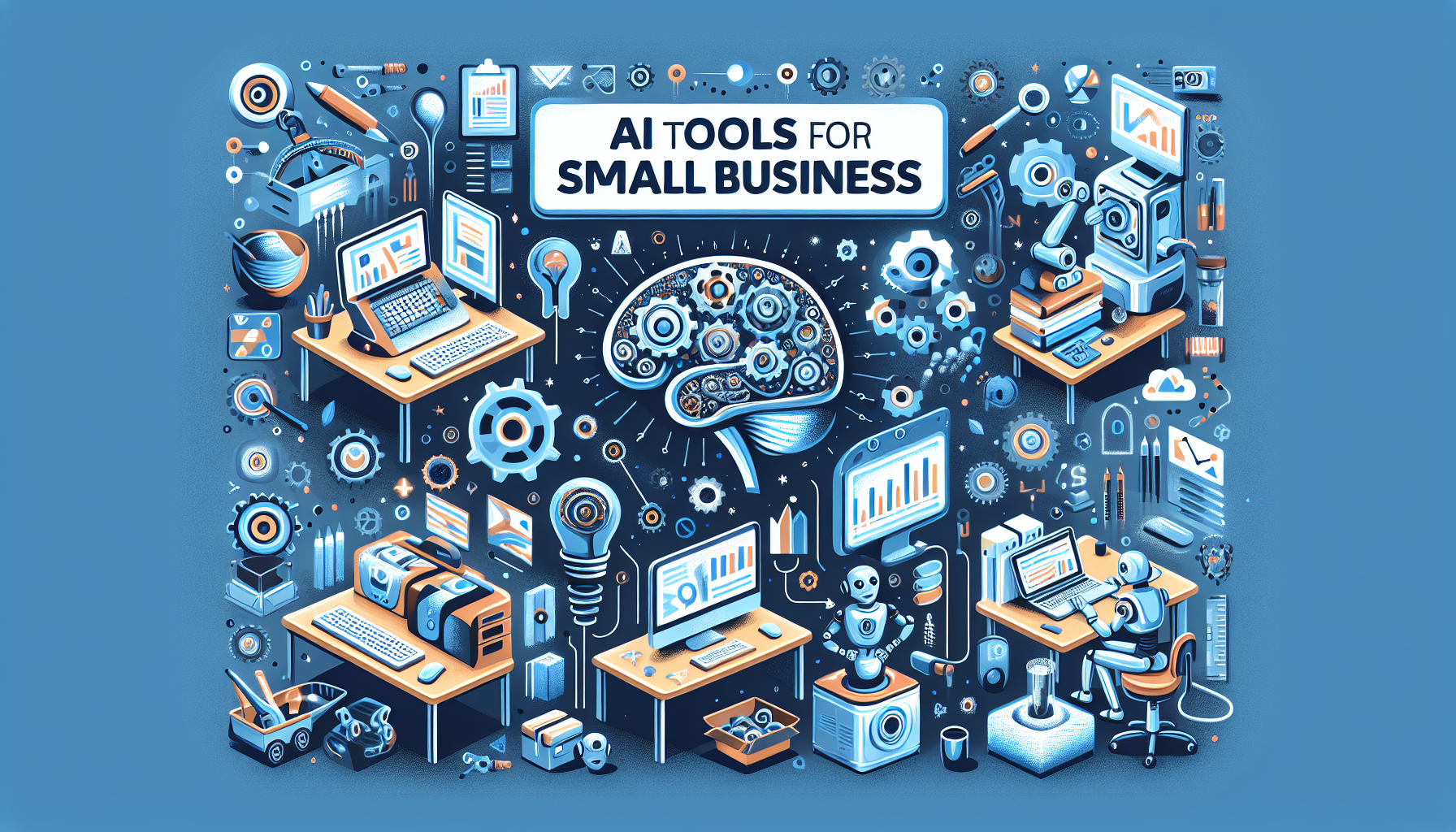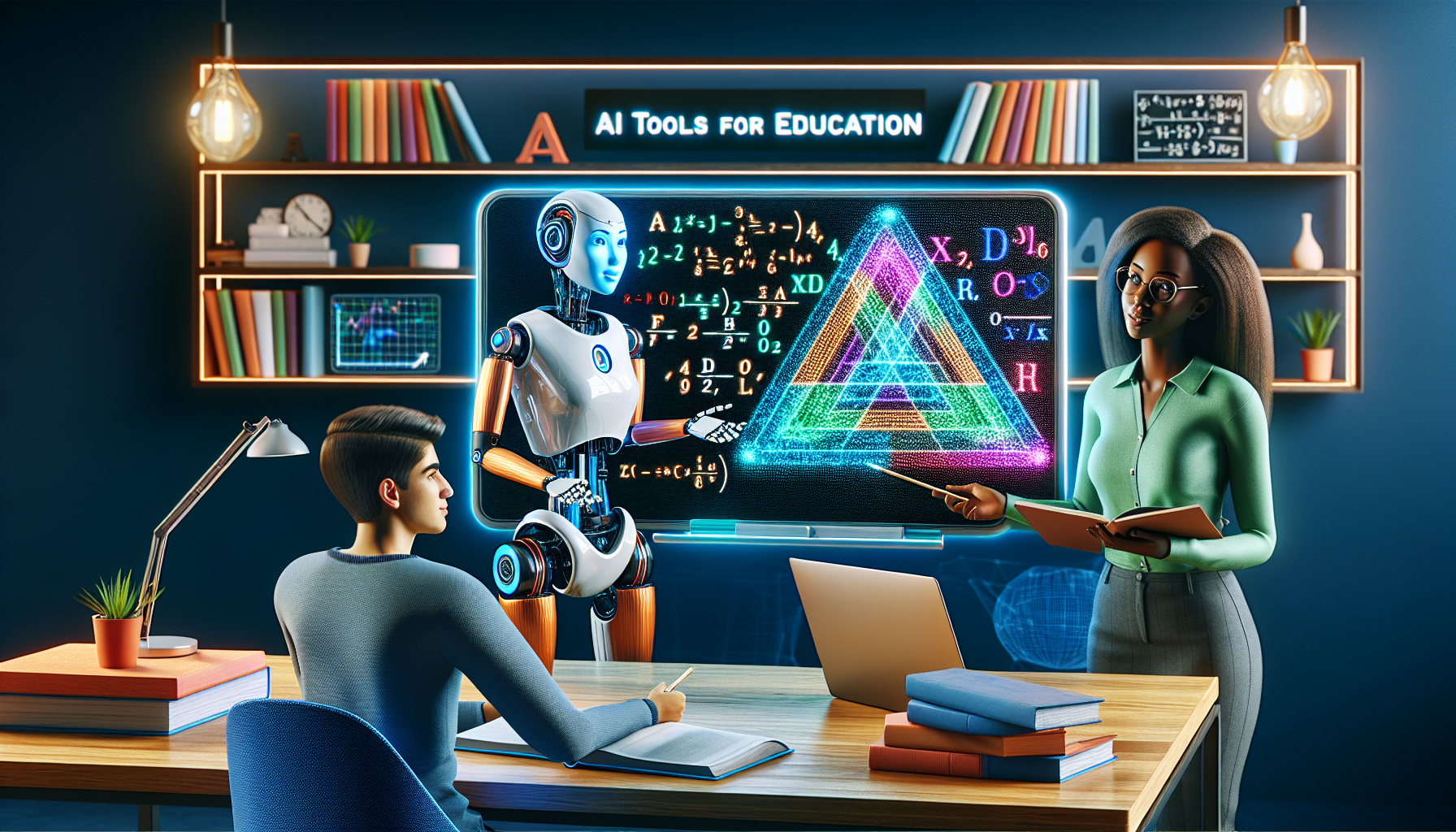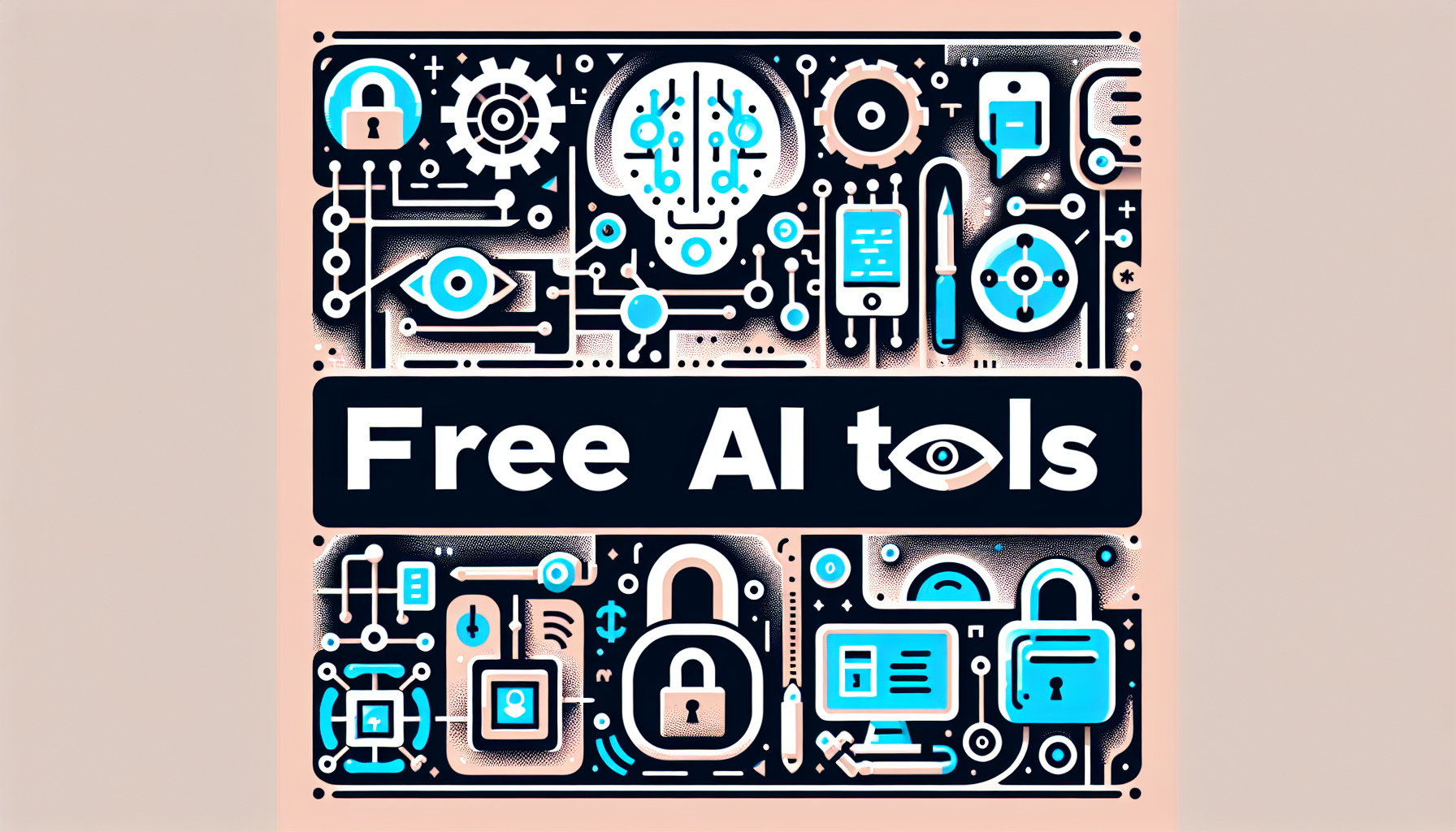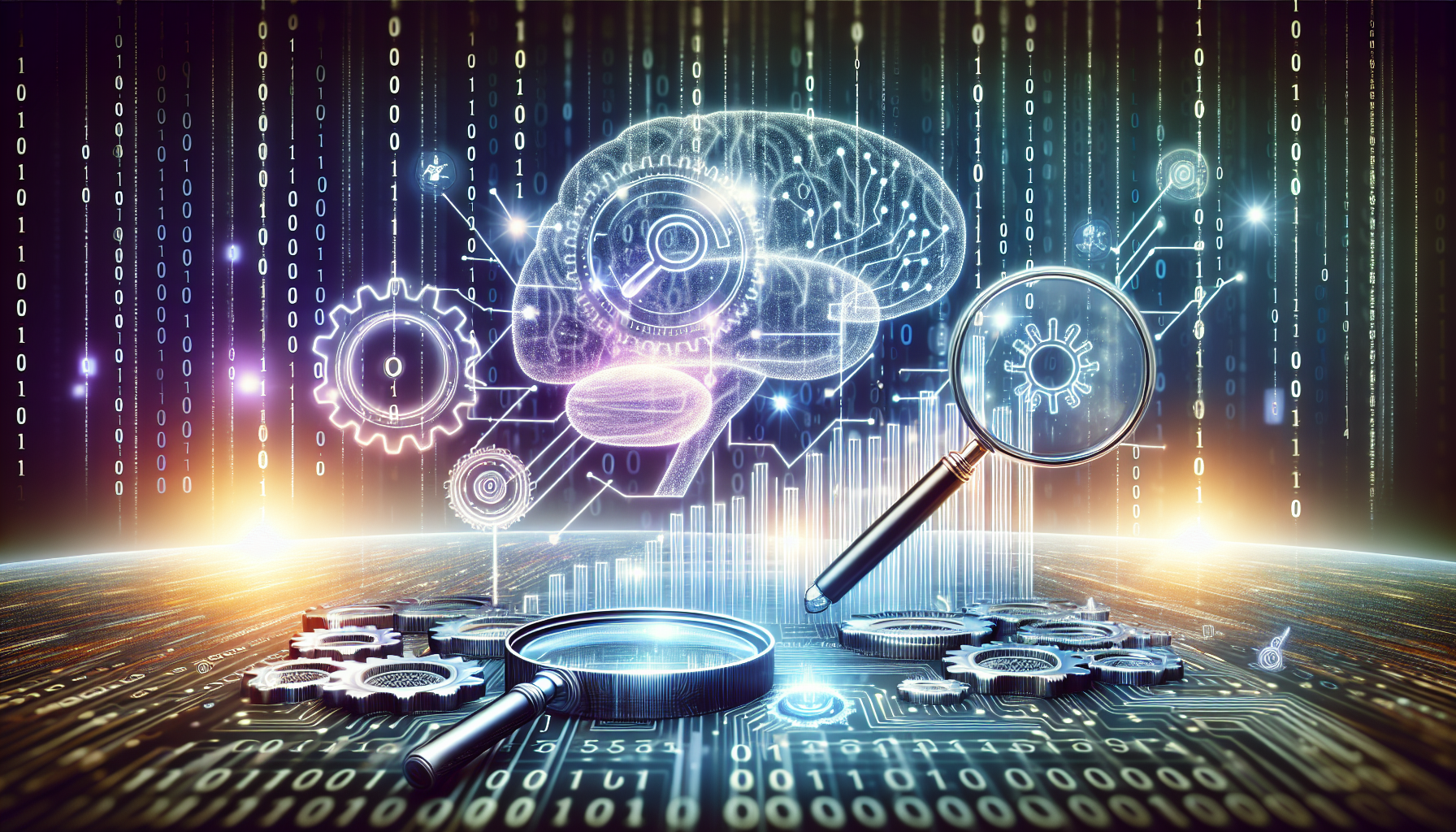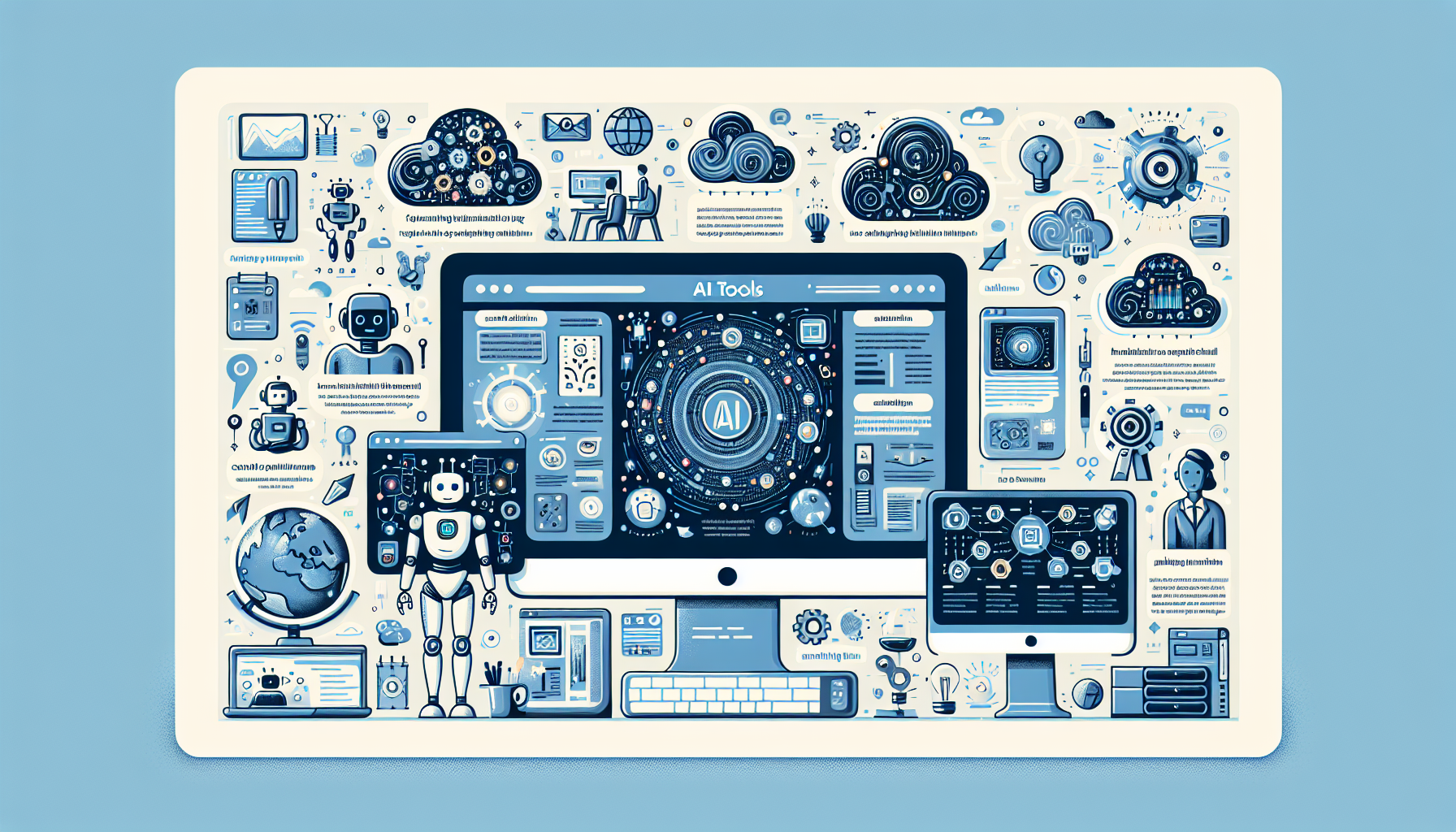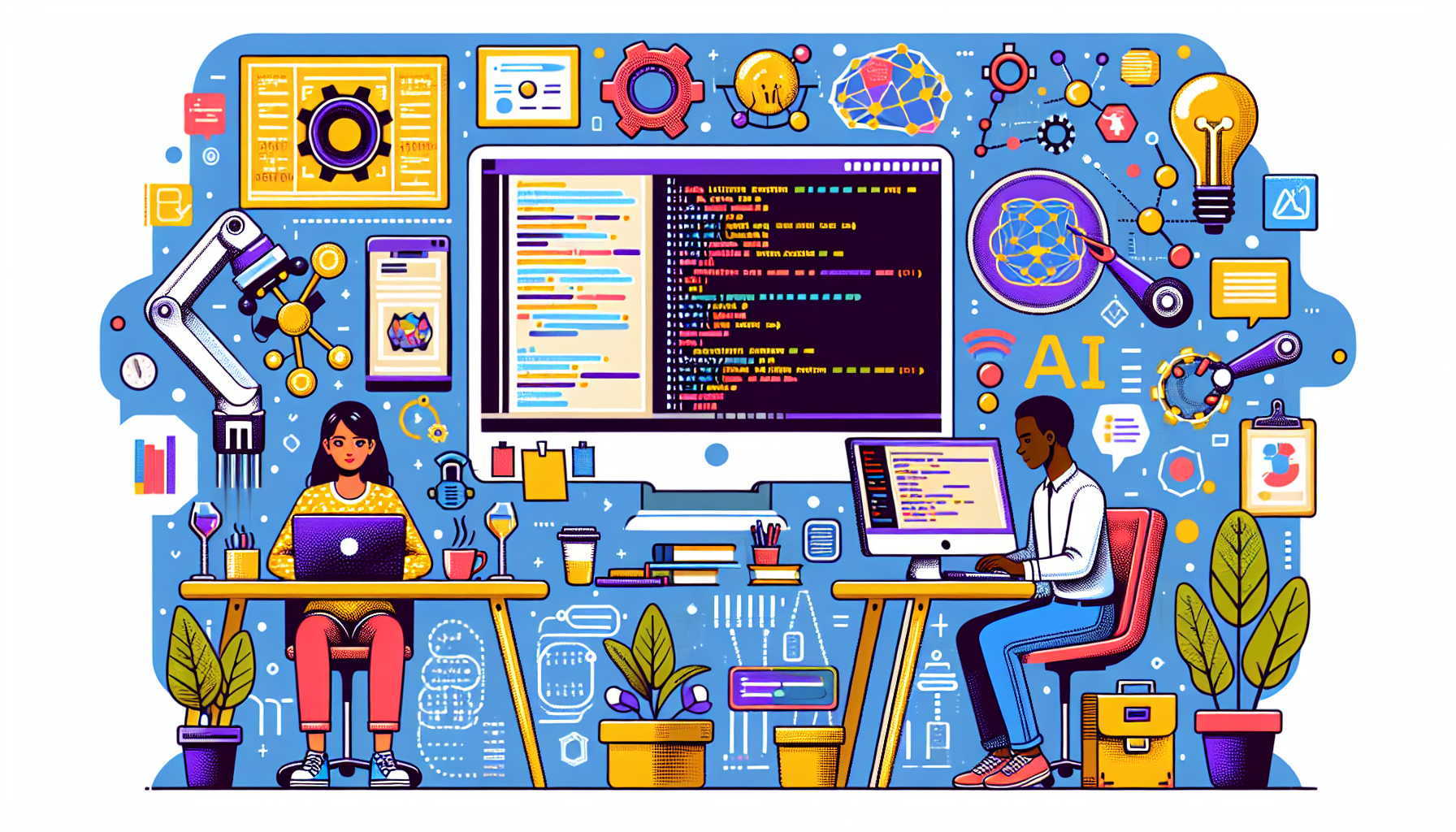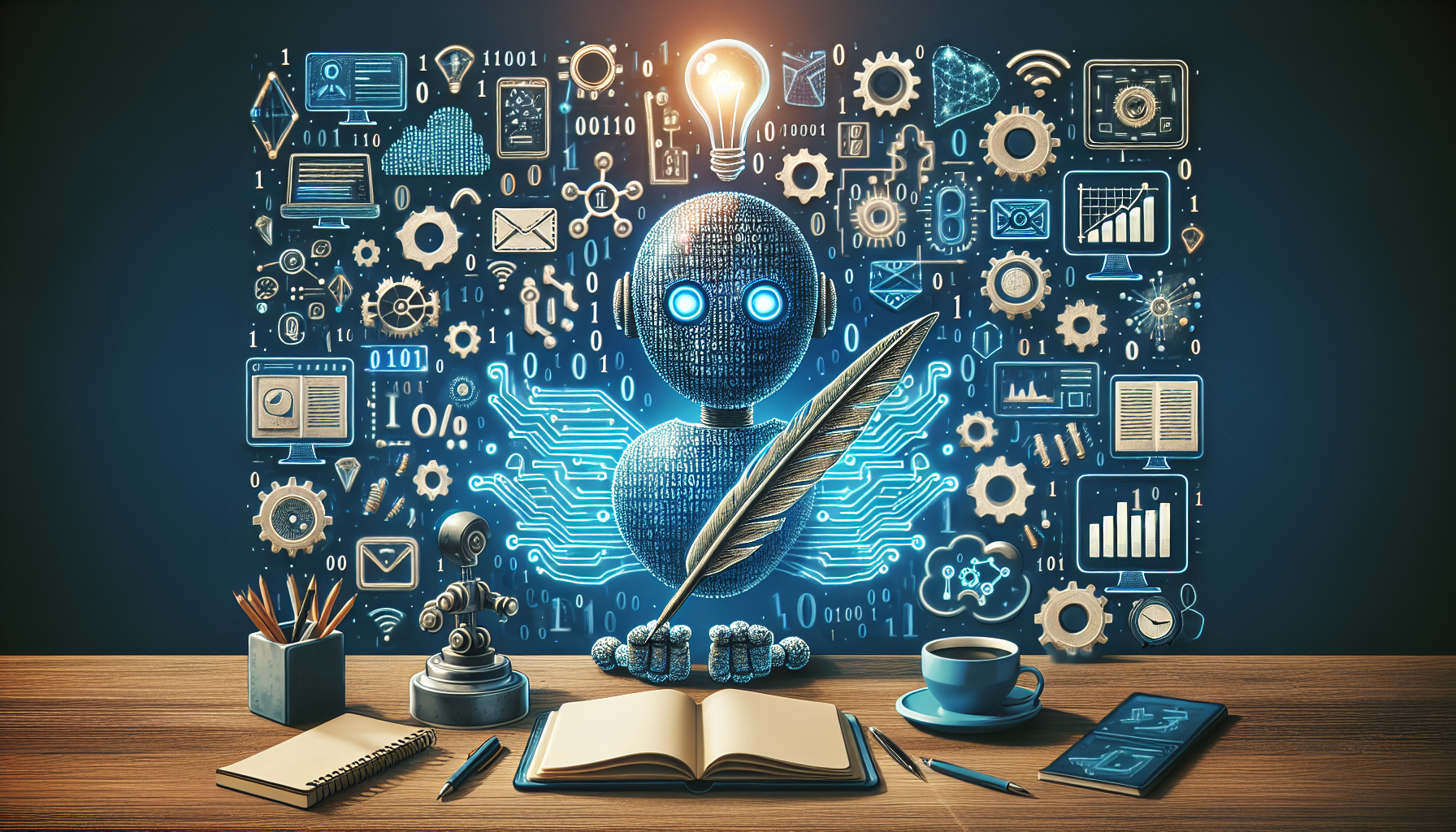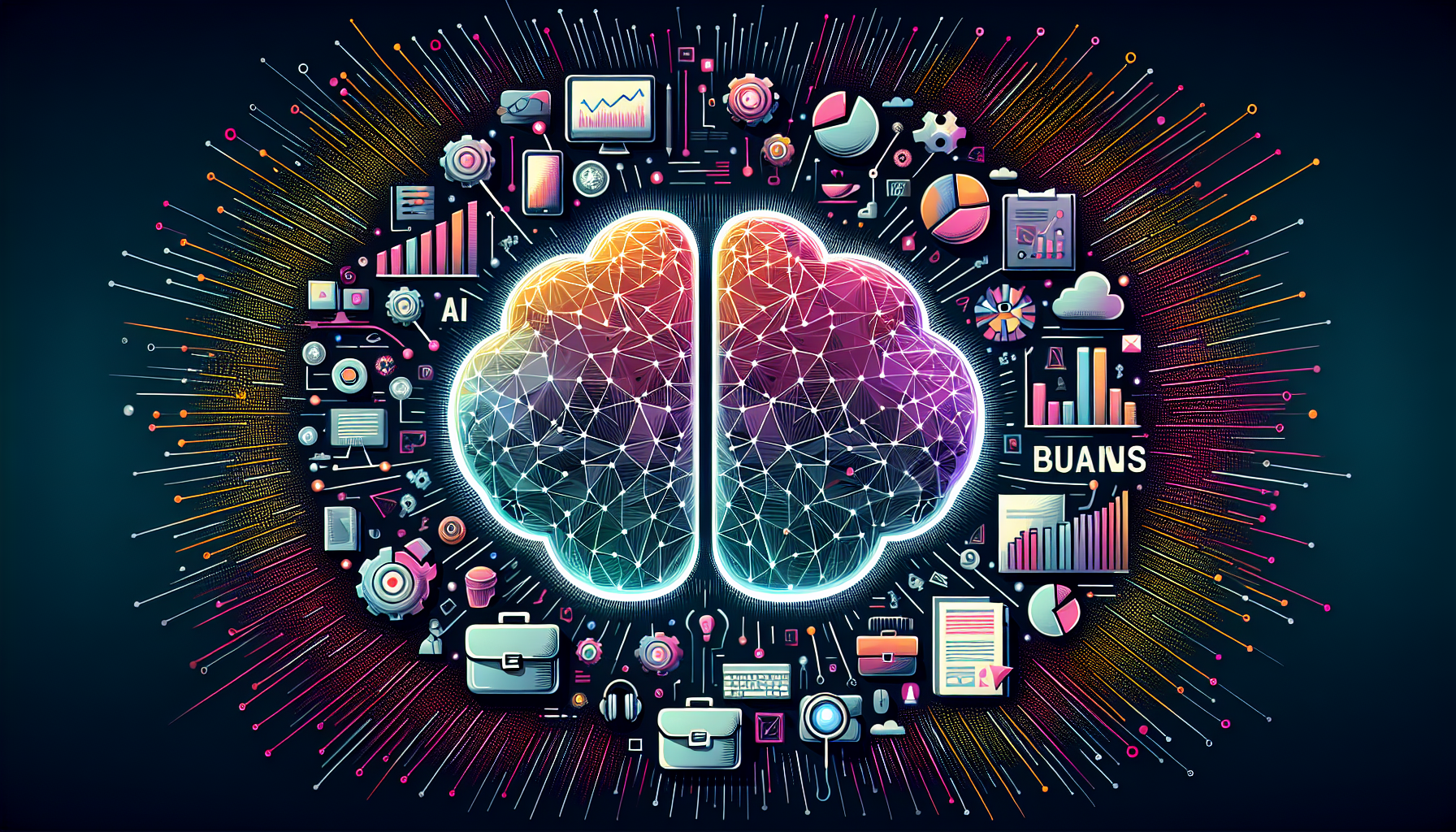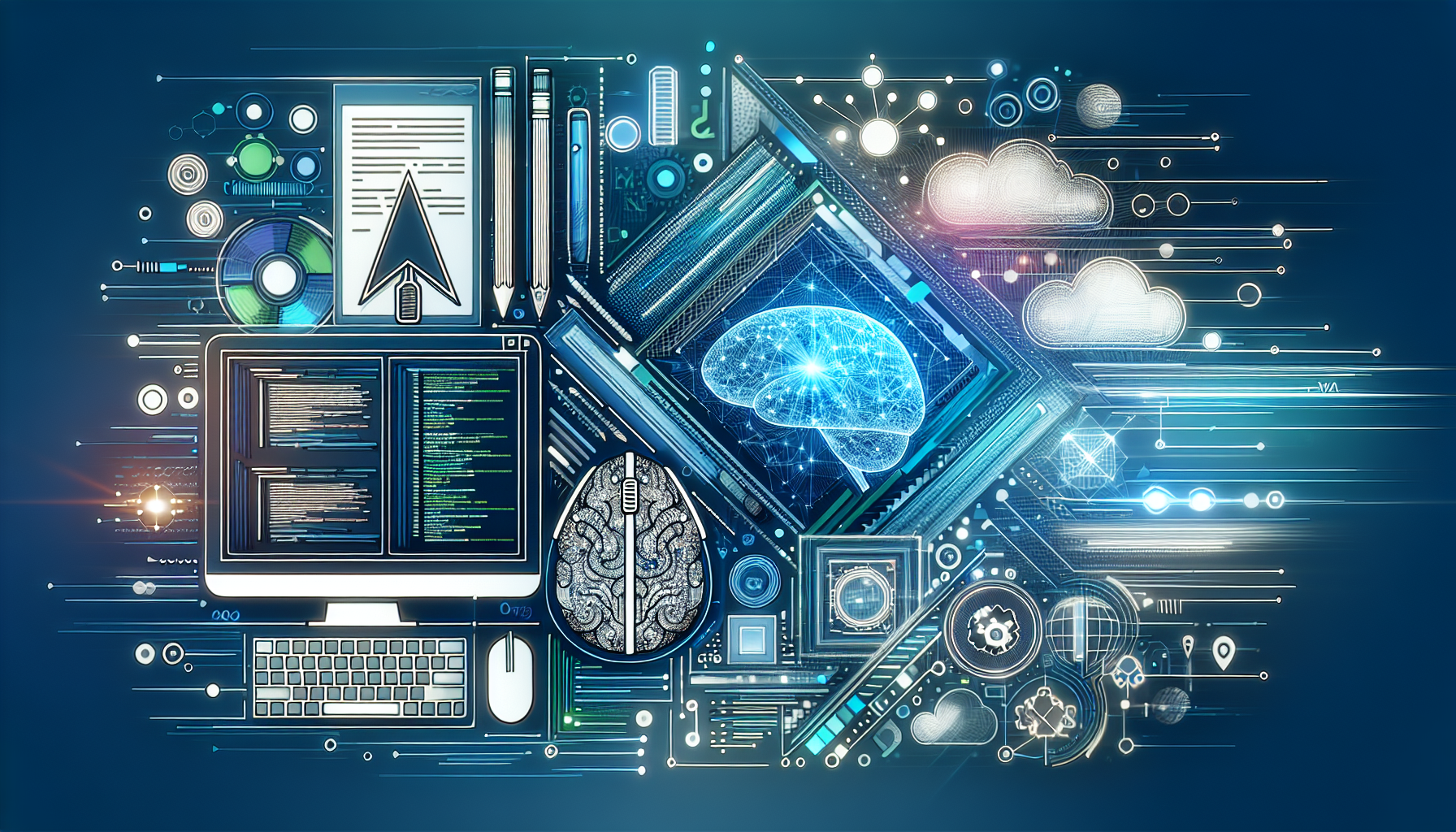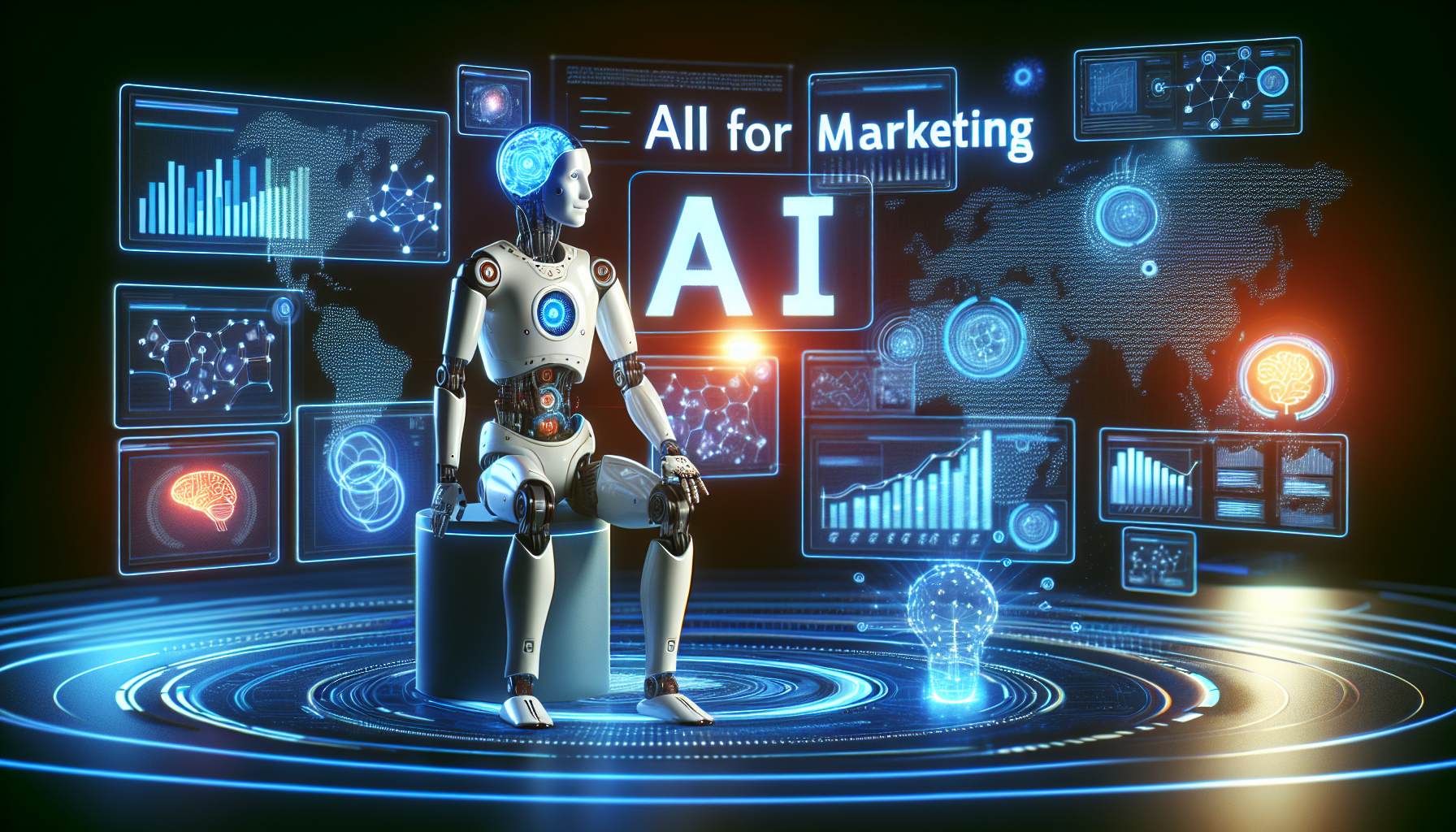Outline of the Article
| H1 – Introduction |
|---|
| H2 – What are AI Tools? |
| H3 – Benefits of AI for Small Businesses |
| H3 -1 Increased Efficiency |
| H3 -2 Customer Insights |
| H3 -3 Personalized Marketing |
| H2 – Popular AI Tools for Small Businesses |
| H3 -1 Chatbots |
| H3 -2 Marketing Automation |
| H3 -3 Data Analysis Tools |
| H2 – Implementing AI Tools |
| H3 -1 Setting Clear Objectives |
| H3 -2 Choosing the Right Tools |
| H3 -3 Training and Integration |
| H1 – Conclusion |
Article
| H1 – Introduction |
| Small businesses can benefit greatly from leveraging AI tools to streamline operations and enhance customer experiences. In this article, we will explore the potential of AI tools for small businesses and how they can be effectively implemented to drive growth and efficiency. |
| H2 – What are AI Tools? |
| AI tools, or artificial intelligence tools, are applications and platforms that utilize machine learning algorithms and data analysis to perform tasks that typically require human intelligence. These tools can range from chatbots and virtual assistants to advanced data analytics software. |
| H3 – Benefits of AI for Small Businesses |
| H3 -1 Increased Efficiency |
| AI tools can automate repetitive tasks, freeing up valuable time for small business owners and employees to focus on more strategic initiatives. Processes such as data entry, scheduling, and basic customer service can be efficiently handled by AI, leading to increased productivity. |
| H3 -2 Customer Insights |
| By analyzing customer data and interactions, AI tools can provide valuable insights into consumer behaviors and preferences. Small businesses can leverage this information to tailor their products and services to better meet customer needs, ultimately improving satisfaction and loyalty. |
| H3 -3 Personalized Marketing |
| AI-powered marketing tools enable small businesses to create personalized marketing campaigns based on individual customer profiles and behaviors. This level of customization can significantly enhance the effectiveness of marketing efforts, leading to higher conversion rates and better ROI. |
| H2 – Popular AI Tools for Small Businesses |
| H3 -1 Chatbots |
| Chatbots are AI-powered virtual assistants that can interact with customers in real-time, providing support, answering queries, and even facilitating sales transactions. Small businesses can integrate chatbots into their websites and social media platforms to improve customer engagement and support. |
| H3 -2 Marketing Automation |
| Marketing automation tools leverage AI to streamline the management and execution of marketing campaigns. From email marketing to social media scheduling, these tools can help small businesses automate repetitive tasks, segment audiences, and analyze campaign performance. |
| H3 -3 Data Analysis Tools |
| Data analysis tools powered by AI enable small businesses to extract meaningful insights from large datasets, identify trends, and make data-driven decisions. From predictive analytics to customer segmentation, these tools can provide valuable information for strategic planning and business growth. |
| H2 – Implementing AI Tools |
| H3 -1 Setting Clear Objectives |
| Prior to implementing AI tools, small businesses should define clear objectives and identify areas where these tools can add value. Whether it’s improving operational efficiency, enhancing customer experiences, or optimizing marketing efforts, setting specific goals is essential for successful AI integration. |
| H3 -2 Choosing the Right Tools |
| With a multitude of AI tools available in the market, small businesses must carefully assess their needs and choose the right tools that align with their objectives. Factors such as budget, scalability, and integration capabilities should be considered when selecting AI solutions. |
| H3 -3 Training and Integration |
| Once the appropriate AI tools are chosen, small businesses should invest in training for employees and ensure seamless integration with existing systems. Adequate training and change management strategies are crucial to maximizing the benefits of AI tools while minimizing disruption. |
| H1 – Conclusion |
| AI tools present immense opportunities for small businesses to optimize operations, enhance customer experiences, and drive growth. By embracing AI-powered solutions, small business owners can streamline processes, gain valuable insights, and stay competitive in an increasingly digital marketplace. |
Unique FAQs
Q: Can AI tools replace human employees in small businesses?
A: While AI tools can automate certain tasks, they cannot fully replace the value of human employees. Instead, AI can complement human efforts and enable employees to focus on more complex and strategic activities.
[aib_post_related url=’/ai-tools-for-business/’ title=’Maximize Your Business Potential: Top AI Tools For Business Success in 2021′ relatedtext=’You may also be interested in:’]
Q: Are AI tools affordable for small businesses?
A: Many AI tools offer scalable pricing models suitable for small businesses. Additionally, the long-term benefits of increased efficiency and improved customer experiences often outweigh the initial investment.
Q: How can small businesses ensure the security of AI tools?
A: Small businesses should prioritize security when choosing AI tools, opting for reputable providers with robust security measures. It’s also essential to stay updated on AI security best practices and implement necessary protocols.
[aib_post_related url=’/ai-tools-for-content-creation/’ title=’Unlocking Creativity: Top AI Tools for Streamlined Content Creation’ relatedtext=’You may also be interested in:’]
Q: What are the potential challenges of implementing AI tools in small businesses?
A: Challenges may include resistance to change, the need for employee training, and ensuring seamless integration with existing systems. Proper planning and effective change management are key to overcoming these challenges.
Q: How can small businesses measure the success of AI tool implementation?
A: Success can be measured through metrics such as improved efficiency, enhanced customer satisfaction, and the impact on business KPIs. It’s important to establish clear benchmarks and regularly assess the performance of AI tools.

